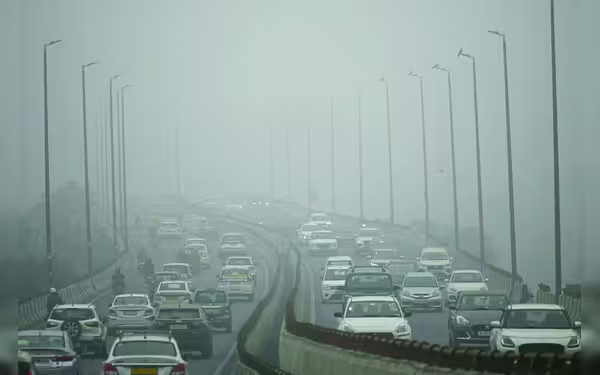Saturday, November 16, 2024 07:53 PM
Delhi Surpasses Lahore in Pollution Levels
- Delhi's AQI reaches 'severe' levels for the first time this season.
- Pollution levels in Delhi now exceed those in Lahore, Pakistan.
- Immediate action is needed to combat rising air pollution.
 Image Credits: tribune.com.pk
Image Credits: tribune.com.pkDelhi's air quality worsens, surpassing Lahore's pollution levels, highlighting urgent need for action against air pollution.
Air pollution has become a pressing issue in many cities around the world, and recently, it has taken a turn for the worse in India’s national capital, Delhi. On Wednesday, the air quality index (AQI) in Delhi reached a 'severe' level for the first time this season. This alarming rise in pollution levels coincided with a drop in temperatures and wind speeds, which are crucial for dispersing pollutants in the air. As a result, visibility has decreased significantly, leading to disruptions in flight operations.
The Central Pollution Control Board (CPCB) of India categorizes air quality based on the AQI readings. An AQI score ranging from 0 to 50 is considered 'good', indicating that the air is clean and healthy to breathe. However, when the AQI exceeds 401, it is classified as 'severe'. This level of pollution not only poses a risk to healthy individuals but also has a serious impact on those who already suffer from respiratory or other health issues.
In a surprising turn of events, Delhi has now overtaken Lahore, Pakistan, in terms of pollution levels. This shift highlights the growing environmental challenges faced by urban areas in South Asia. The situation in Delhi serves as a wake-up call for both governments and citizens to take immediate action to combat air pollution. It is essential to implement stricter regulations on emissions from vehicles and industries, promote the use of public transport, and encourage green initiatives such as tree planting.
As we reflect on this troubling development, it is crucial to understand that air quality affects everyone. Poor air quality can lead to serious health problems, including asthma, heart disease, and other chronic conditions. Therefore, it is imperative for individuals to stay informed about air quality levels and take necessary precautions, such as wearing masks and limiting outdoor activities during high pollution days. By working together, we can strive for cleaner air and a healthier future for all.













